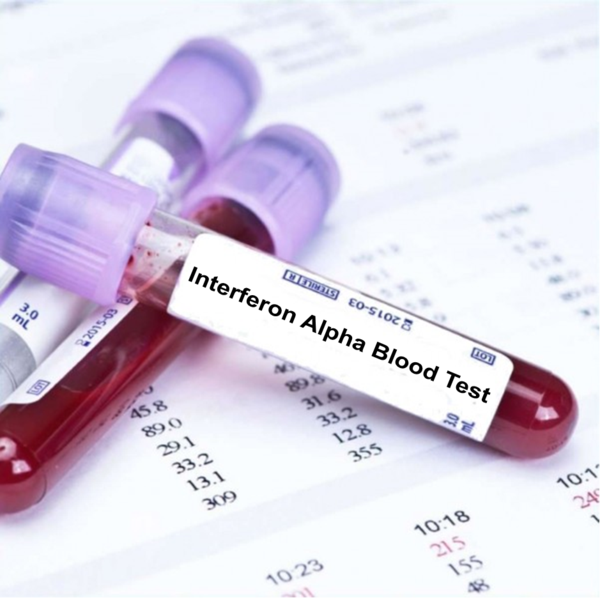COVID-19 Diagnostics: French Researchers Advocate Utilizing Type 1 Interferon Deficiency As Biomarker For COVID-19 Patients At Risk Of Severity
Source: COVID-19 Diagnostics Jul 18, 2020 4 years, 9 months, 1 week, 1 day, 15 hours, 16 minutes ago
COVID-19 Diagnostics: Roughly between 8 to 12% of individuals with COVID-19 disease progresses to a severe or critical form, including the development of severe pneumonia that progresses to acute respiratory distress syndrome.

Although these forms sometimes occur early in the course of the disease, clinical observations generally describe a two-stage progression of the disease, beginning with a mild to moderate form, followed by respiratory aggravation 9 to 12 days after the onset of the first symptoms. This sudden progression suggests deregulation of the host inflammatory response.
Evidence suggests that this aggravation is caused by a large increase in cytokines. This runaway inflammatory response is correlated with massive infiltration in the lungs of innate immune cells, namely neutrophils and monocytes, creating lung damage and acute respiratory distress syndrome.
Conventionally by analogy with a genetic disease leading to a similar pulmonary pathology identified at Institut Imagine by the team of Inserm researcher Frédéric Rieux-Laucat, the initial hypothesis assumed excessive production of interferon (IFN) type I, a marker of the response to infections.
Significantly however, in seriously ill patients, the teams of Darragh Duffy (Dendritic Cell Immunobiology Unit, Institut Pasteur/Inserm), Frédéric Rieux-Laucat (Laboratory of Immunogenetics of Pediatric Autoimmune Diseases at Institut Imagine—Inserm/Université de Paris), Solen Kernéis (Mobile Infectiology Team, AP-HP Centre—Université of Paris) and Benjamin Terrier (Department of Internal Medicine, AP-HP Centre—Université of Paris) show that the production and activity of type-I IFN are strongly reduced in the most severe forms of Covid-19.
Furthermore, there is a persistent blood viral load, indicating poor control of viral replication by the patient's immune system which leads to an ineffective and pathological inflammatory response. The inflammation, caused by the transcription factor NF-kB, also leads to increased production and signaling of tumor necrosis factor (TNF)-alpha and the pro-inflammatory cytokine interleukin IL-6.
Significantly, distinct type-I IFN responses may be characteristic of each stage of the disease
Also of interest, this low signature of type-I IFN differs from the response induced by other respiratory viruses such as human respiratory syncitial virus or influenza A virus, both of which are characterized by high production of type-I IFN.
The research also showed that low levels of type-I IFN in plasma precede clinical worsening and transfer to intensive care. Levels of circulating Type 1 IFN could even characterize each stage of disease, with the lowest levels observed in the most severe patients.
These study results suggest that in SARS-CoV-2 infection, the production of type-I IFN is inhibited in the infected host, which could explain the more frequent severe forms in individuals with low production of this cytokine, such as the elderly or those with co-morbidities.
Hence, type-I IFN deficiency could be a signature of severe forms of COVID-19 and could identify a high-risk po
pulation.
The research findings were published in the journal: Science
https://science.sciencemag.org/content/early/2020/07/10/science.abc6027
The study findings further suggest that the administration of IFN-alpha/Beta combined with anti-inflammatory therapy targeting IL-6 or TNF-α, or corticosteroids such as dexamethasone, in the most severe patients could be a therapeutic avenue to be evaluated for severe forms of COVID-19.
For more on
COVID-19 Diagnostics, keep on logging to Thailand Medical News.
Read Also:
https://www.thailandmedical.news/news/covid-19-diagnostics-uva-researchers-say-that-cytokine-il-13-can-be-used-as-a-blood-test-biomarker-to-determine-covid-19-severity
